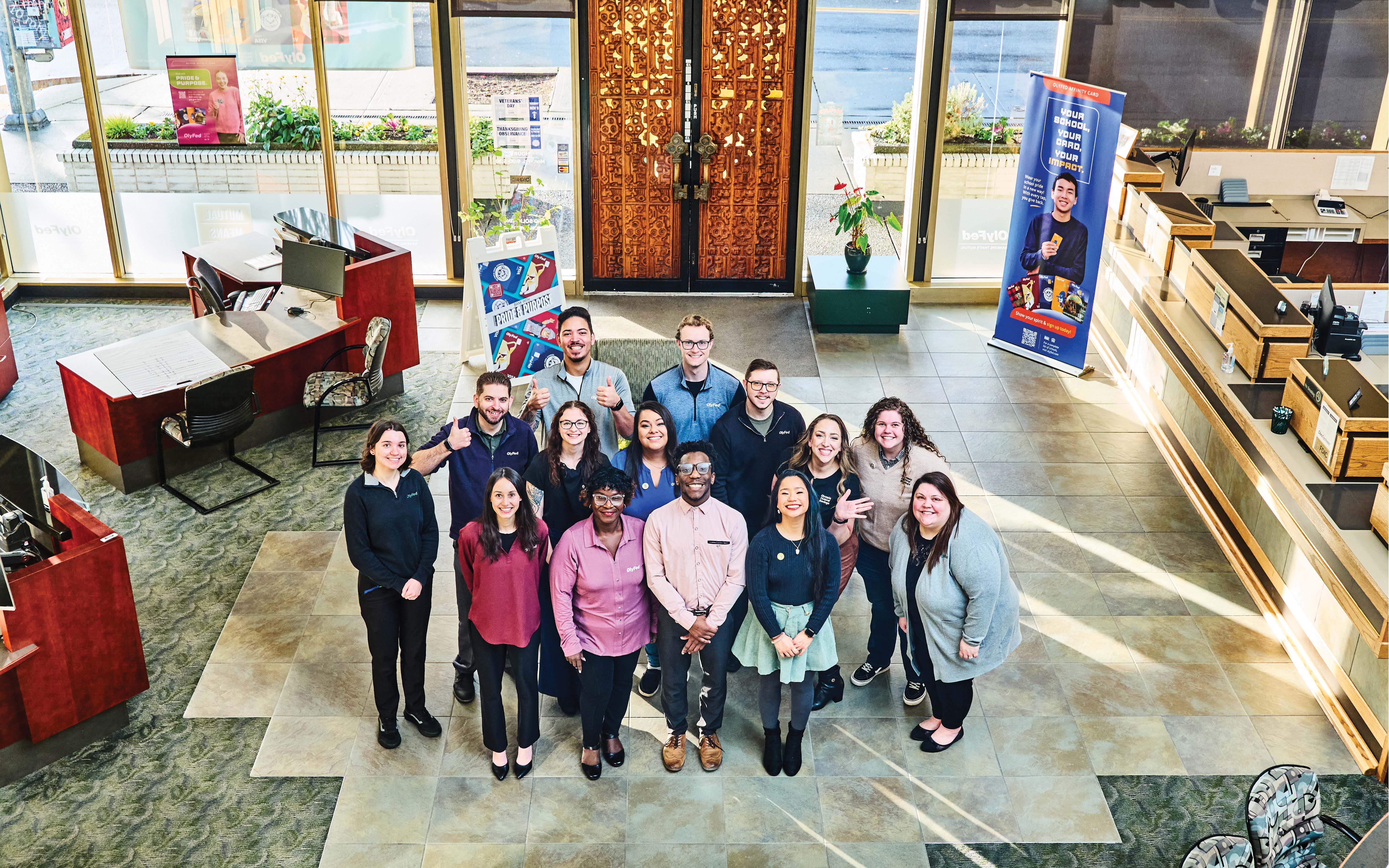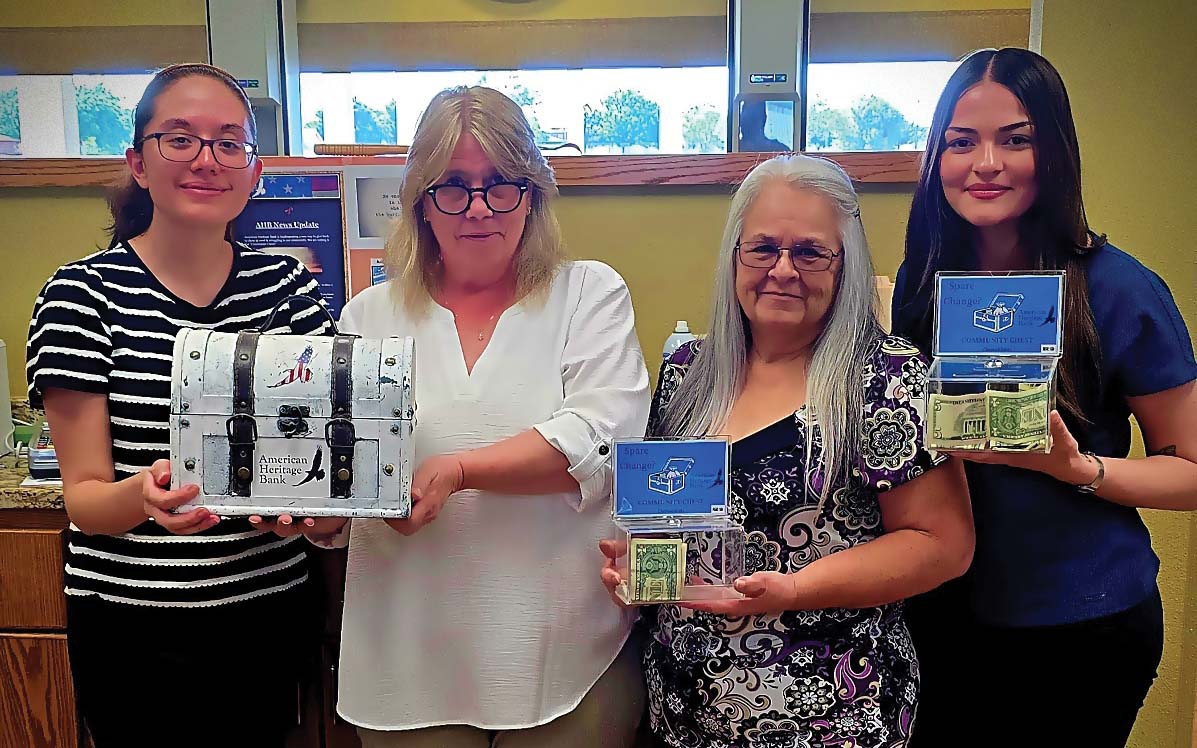United Bank’s Church Street Incubator serves as a launchpad for budding companies by reducing their financial burden and building community.
United Bank: Incubating Success for Local Businesses
October 01, 2024 / By Tarra Willox
United Bank’s Church Street Incubator serves as a launchpad for budding companies by reducing their financial burden and building community.
Back in 2015, a group of people at United Bank in Atmore, Ala., took both figurative and literal steps to do more to support local businesses. They found an opportunity right behind the United Bank headquarters: an old hardware store on East Church Street that had become available. The team at the $1.2 billion-asset community bank saw huge potential in this space.
The United Bank team would soon transform this 10,000-square-foot facility into a business incubator to foster and support entrepreneurs in the community. It’s a project that’s right up United Bank’s alley: It builds upon the community bank’s 120-year legacy of nurturing small businesses and aligns with its status as a community development financial institution (CDFI).
“What we’d love to see businesses do is get their wings and fly,” says Anne Hetzel, vice president, Community Reinvestment Act officer and data impact manager at the bank.
Envisioning the shared workspace
Business startups often face the substantial burden of initial overhead expenses, such as equipment and utility connections. United Bank sought to alleviate these pressures by developing a space that provides these essential needs. The result was the Church Street Incubator, which occupies about 6,000 square feet of the property.
“The overhead is provided by United Bank,” says Hetzel. “We provide Wi-Fi, a shared printer, things like that, along the way in this building.”
Each incubator member also has a designated office space with repurposed furniture available like desks, conference tables and chairs. Hetzel notes that the yearly fee for incubator members is nominal, giving them an opportunity to get up on their feet without having to invest large sums of money up front.
The process of making the old hardware store suitable for small businesses’ needs required significant development, restructuring and remodeling efforts. It was made possibly by the sponsorship of United Bank Charitable Foundation—which allocates funds for small business support, job training, economic growth and revitalization efforts in low- and moderate-income communities throughout southwest Alabama and northwest Florida.
“United Bank Charitable Foundation is the driver behind this, and Laura [Puchner, United Bank’s community development officer] and I are the two who work with the incubator and incubator members,” says Hetzel. “We feel it’s a very valuable tool for the community and being able to give back.”
Tailored support for startups
According to Puchner, the Church Street Incubator typically works with service industry businesses, but United Bank strives to meet each incubator member’s needs, whatever industry they’re in.
“We did have one [commercial] cleaning business that was running payroll, so we really had to amp up our internet so everybody could function on that,” she says. “It cost a little bit more, but that was a service that they needed.”
Hetzel notes that the incubator’s roster of businesses include non-medical home healthcare providers, photography and event planning, computer restoration, professional development services, and residential and commercial cleaning.
Building a supportive community
One of the Church Street Incubator’s most valuable attributes is that it gives startups a chance to hone their purpose before going it alone. “The real benefit of it is,” says Puchner, “before [new business owners] sink lots of money into [their business] and really get themselves in a financial bind, they can figure out what’s important to them, and what they really want and where they really want to go.”
Another benefit is the sense of community it builds: Incubator members learn how to work alongside one another. Puchner notes that if one incubator member is hosting an event, the other members often try to show up and support them.
“They are all learning about different things, and they really do support each other and encourage each other,” she says. “So, that’s the kind of thing we want to foster.”
Ongoing education
With any business, continuing education is essential, and this is especially true for businesses that are just starting out. So, United Bank collaborates with local organizations like the Small Business Development Center (SBDC) of Alabama and the local Chamber of Commerce to run trainings for the incubator members.
“Part of our requirements for a business is that each business or organization has to have a viable business plan,” says Hetzel. “That service is provided [at no cost] through the Alabama Small Business Development Center [SBDC] and through Yolanda Johnson.”
Working one-on-one with Johnson, a business advisor for Alabama SBDC, incubator members walk through a checklist of things they need for their businesses to start out strong and ready for success, such as paying sales tax, obtaining certain licenses and considering insurance options.
United Bank has also hosted events at the Church Street Incubator like a two-minute pitch competition for a total prize of $40,000 and a series of business breakfasts.
“What we’ve been doing has been working well, but we always look to grow and [enhance our services],” says Hetzel. “That continued growth along the way of bringing new businesses in and organizations in and bringing in more [business] training … would be beneficial to not only the members, but [also] the community.”
Subscribe now
Sign up for the Independent Banker newsletter to receive twice-monthly emails about new issues and must-read content you might have missed.
Sponsored Content
Featured Webinars
Join ICBA Community
Interested in discussing this and other topics? Network with and learn from your peers with the app designed for community bankers.
Subscribe Today
Sign up for Independent Banker eNews to receive twice-monthly emails that alert you when a new issue drops and highlight must-read content you might have missed.
News Watch Today

Join the Conversation with ICBA Community
ICBA Community is an online platform led by community bankers to foster connections, collaborations, and discussions on industry news, best practices, and regulations, while promoting networking, mentorship, and member feedback to guide future initiatives.













